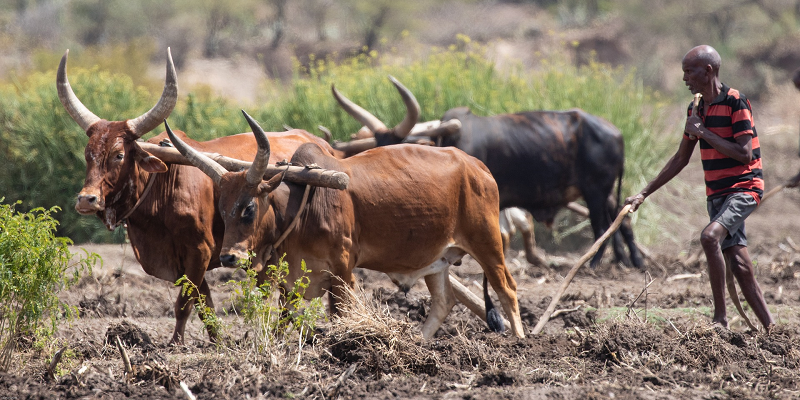
UK Research and Innovation has announced a large cut to the Global Challenges Research Fund (GCRF) as a result of the Government's decision to reduce spending on international aid.
GCRF was established to target the best of Britain's research effort at the big problems facing the world.
The University has been involved in about 150 individual projects in more than 50 countries that have been funded by GCRF, or the associated Newton Fund. Both form part of UK Overseas Development Assistance. The projects have resulted in research collaborations around the globe.
One African scientist said: "GCRF creates an atmosphere of possibilities - giving hope to countless people."
Take a look at what some of those projects have achieved.
Improving weather forecasting across Africa
GCRF has funded a major project called African Science for Weather Information and Forecasting Techniques - African SWIFT.
Extreme weather such as storms, droughts and floods have severe impacts on communities. Every year, high-intensity weather events result in devastating loss of life and damage to land and infrastructure - and they are set to increase because of climate change.

A picture taken from space of a hurricane. Picture: Pixabay
Improving the accuracy of weather forecasting is critical for people's safety, and for key economic sectors including aviation, agriculture, energy, water supply and emergency response.
The project received £7.9 million in funding from GCRF, commenced activities in 2017 and is planned to run until the end of 2021.
Doug Parker, Professor of Meteorology at Leeds and Lead Scientist with African SWIFT, said: "By improving weather forecasting, the project has had an impact on the lives of millions of ordinary people who, armed with accurate weather information, can take steps to protect themselves, their families and livestock from the effects of severe weather. It also enables organisations and governments to better respond if there is a weather emergency.
"But the biggest legacy of African SWIFT is the way it has fostered a network of operational forecasters and meteorological scientists across Africa who will continue to adapt and improve forecasting techniques in the light of the latest research long after African SWIFT has finished."
Initiatives completed by African SWIFT include:
- The introduction of a technique called nowcasting, enabling meteorologists to make accurate, hour-by-hour forecasts as severe storm conditions begin to form.
- In partnership with Africa's meteorological scientists, weather models are reviewed and revised to ensure they are up to date with the latest research. One project has looked at improving the prediction of the sudden and sometimes devastating storms around Lake Victoria.
- Scientists involved with African SWIFT and a partner organisation, ACMAD - the African Centre of Meteorological Applications for Development, have developed techniques to try to predict the location and scale of impending meningitis outbreaks in sub-Saharan Africa using weather data.
Tackling high maternal death rates
In 2017, sub-Saharan Africa accounted for two thirds of all global maternal deaths. In Kenya there were 342 deaths per 100,000 live births - in Europe, the figure averaged around seven. African nations are unlikely to hit the UN Sustainable Development Goal to reduce preventable maternal deaths to no more than 70 in 100,000 live births by 2030.
Researchers have been investigating the factors that might be contributing to the high death rate.

A mother proudly showing off her baby. Picture: Pixabay
A GCRF-funded project involving Leeds, Makerere University in Uganda and the Catholic University of East Africa has been investigating a novel approach to ways of improving maternal health. It brought together researchers in the medical humanities with medical and public health experts.






